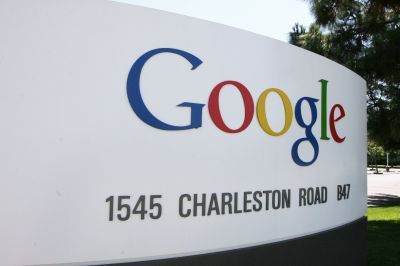Fury in Frankfurt at Google's global library project

Your support helps us to tell the story
From reproductive rights to climate change to Big Tech, The Independent is on the ground when the story is developing. Whether it's investigating the financials of Elon Musk's pro-Trump PAC or producing our latest documentary, 'The A Word', which shines a light on the American women fighting for reproductive rights, we know how important it is to parse out the facts from the messaging.
At such a critical moment in US history, we need reporters on the ground. Your donation allows us to keep sending journalists to speak to both sides of the story.
The Independent is trusted by Americans across the entire political spectrum. And unlike many other quality news outlets, we choose not to lock Americans out of our reporting and analysis with paywalls. We believe quality journalism should be available to everyone, paid for by those who can afford it.
Your support makes all the difference."Garbage" and "hysterical propaganda" was one angry reaction at the world's biggest book fair this year when Google, the world's biggest Internet search service, defended plans to turn millions of books into electronic literature available online.
The row erupted at the 61st international Frankfurt Book Fair, a major annual literary event.
A literature professor from Germany's Heidelberg University responded sharply to Google Books, a massive project by the US group, a supplier of vast amounts of information on the Internet, to give the world access to books otherwise hard or impossible to obtain.
Describing Google's claims as "just a whole garbage of hysterical propaganda," Professor Roland Reuss warned of a threat to traditional publishing, saying at a forum on the issue: "You revolutionize the market but the cost is that the producers of goods in this market will be demolished."
Google's head of Print Content Partnerships in Britain, Santiago de la Mora, responded: "We're solving one of the big problems in the world, that is books are pretty much dead in the sense that they are not being found."
"We're bringing these books back to life, making them more visible to 1.8 billion Internet users in a very controlled way," de la Mora said.
Google Books is facing big legal problems in the United States, Europe and elsewhere around the globe over the key issue of copyright laws.
German Chancellor Angela Merkel has urged that European Union copyright be protected and the German and French governments have filed objections to a US court settlement that a judge has ordered be revised.
The Google plan is pitched as an effort to archive as much of the world's knowledge as possible in one (cyber) space, the first such attempt since the Library of Alexandria.
It is to be paid for mainly by online advertising although some out of print books could also be sold using Espresso one-off printing and binding machines.
The process of making books available on the Internet is known as scanning or digitisation. Digitisation is already old hat for many, but it has gripped the publishing sector in ways that will change our world for better or worse, possibly both, according to experts at the Frankfurt fair.
The trade show is a prestigious literary circus attracting international publishers, booksellers, agents and the world's press, and offering writers a chance to show off their work.
Another hot topic there was portable readers of electronic books, or e-books -- books that can be downloaded from or read on the Internet -- and which are reportedly set for brisk sales in the upcoming holiday shopping seasons.
Google has raised the pressure on its Internet rival, Amazon.com, with a new service called Google Editions.
Google wants to make e-books available to all devices with web browsers, from mobile phones to desk-top computers, challenging Amazon's Kindle e-book reader which forces buyers to buy books through the company.
Google said it and partners planned to have around half a million book titles available by the middle of next year.
Laurent Picard, co-founder of Bookeen, which makes the Cybook Opus reader for e-books, forecast that Google and Amazon "will have a great power over publishers" and could begin to influence prices as paperback books slowly disappeared.
Google said publishers would set the price of works sold and share 45 percent of the total with authors. Google and online retailers would split the rest.
But it is Google's ambitious plan to scan the contents of major libraries worldwide that gets the literary and academic world's blood boiling.
A final court ruling on a challenge by the US Authors Guild and the Association of American Publishers is due next month.
European publishers and public authorities say that, in digitising already more than 10 million books, nine million of which are still protected by copyrights, Google Books has violated European Union laws as some works are European.
EU companies also fear they would get short shrift in the US ruling.
"Before a commercial use of a work is performed you have to get prior permission, this is the principle we fight for," said Christian Sprang, a lawyer for the German Publishers and Booksellers Association
Asked what he thought of scanning the contents of global libraries, EU Commissioner for multilingualism Leonard Orban told AFP: "We must ensure access to the public, if possible for free, but on the other hand we must of course protect the authors."
Join our commenting forum
Join thought-provoking conversations, follow other Independent readers and see their replies
Comments